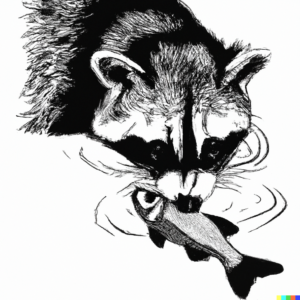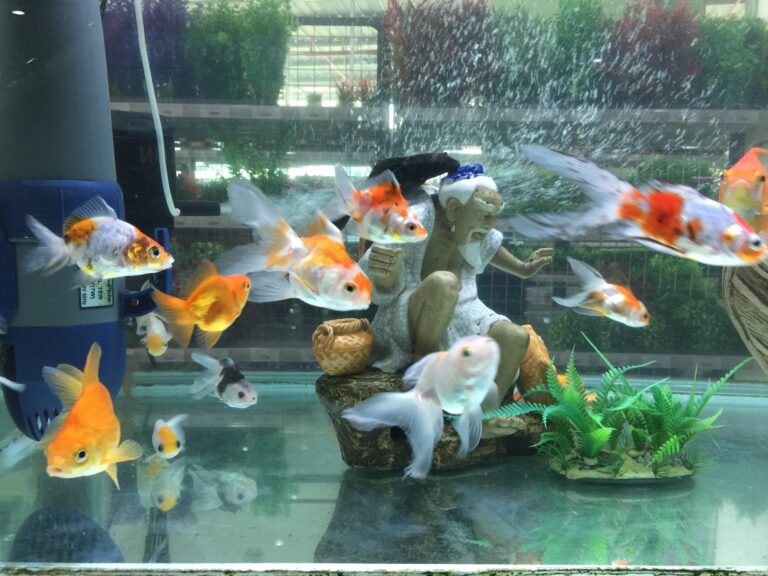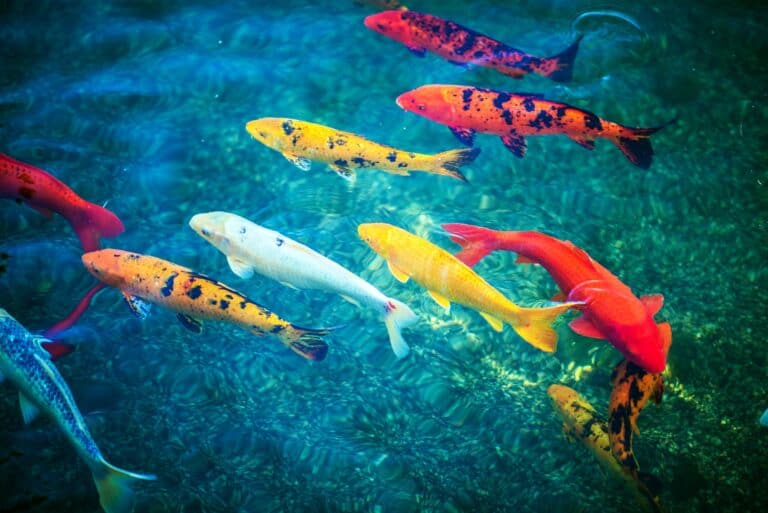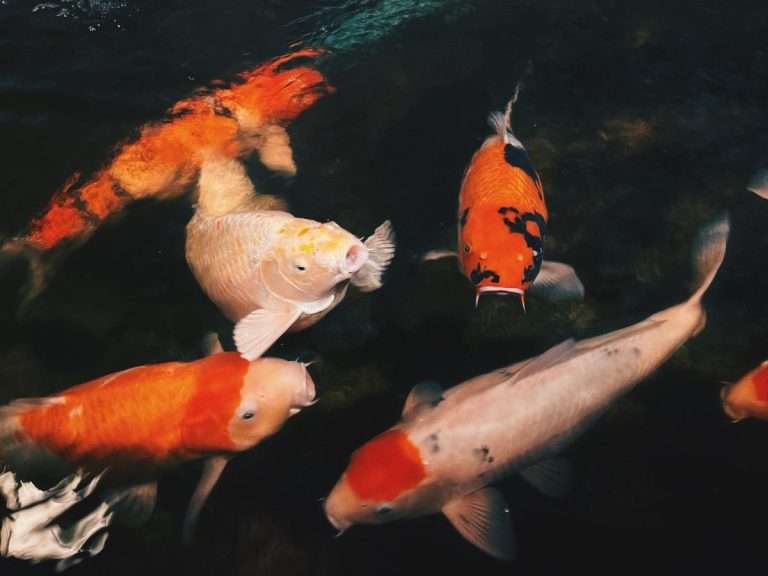Learn 15 Ways To Protect Koi Fish From Predators
Koi fish, treasured for their beauty and serenity, are often targeted by various predators. To protect koi fish from predators you need a thriving and secure pond environment.
1. Understand the Common Predators
First and foremost, it is crucial to identify the most common predators targeting koi fish. This knowledge will allow you to implement appropriate measures for safeguarding your pond. Typical predators include:
- Herons
- Raccoons
- Cats
- Hawks
- Otters
- Snakes
2. Employ Dogs as Koi Pond Guardians

A well-trained dog can be an excellent guard for your koi pond, alerting you to any potential threats like predators or intruders. Many breeds are naturally protective and territorial, and their keen sense of smell and hearing makes them excellent watchdogs. With some proper training and supervision, you can rely on your dog to keep a watchful eye over your beloved koi and help ensure their safety. Plus, having a furry companion by your side while you enjoy your pond can make for some fun and relaxing times.
Dogs are excellent at deterring land-based predators such as raccoons, cats, and snakes. A well-trained dog will naturally chase away these unwanted visitors, providing a reliable layer of protection for your koi pond[1].
3. Install Motion-Activated Deterrents
Motion-activated deterrents are highly effective tools for startling predators and driving them away from your koi pond[1]. Consider the following options:
- Motion-activated water sprinklers: These devices spray water when they detect movement, frightening off potential predators.
- Motion-activated speakers: These speakers emit loud noises or predator calls to scare off unwanted visitors.
4. Use Pond Netting To Protect Koi Fish From Predators
Pond netting is a straightforward yet highly effective solution for protecting your koi from aerial predators such as herons and hawks[1]. Installing a net over your pond also prevents debris from accumulating in the water, improving overall water quality.
5. Construct Pond Shelters
Providing your koi fish with shelters within the pond gives them places to hide when predators are nearby. You can create shelters by:
- Adding submerged rocks or large stones to create hiding spots
- Installing underwater tunnels or pipes
- Planting aquatic vegetation to offer cover
6. Design Your Pond with Safety in Mind
Pond design plays a significant role in protecting your koi from predators. Keep the following factors in mind when constructing or modifying your koi pond:
- Depth: A deeper pond makes it more difficult for predators to reach your koi. Aim for a minimum depth of 3 feet.
- Steep edges: Sloping pond edges provide easy access for predators. Construct your pond with steep sides to deter unwanted visitors.
- Overhanging ledges: Ledges offer hiding spots for koi and make it harder for predators to access the water.
7. Install Fencing Around Your Pond
Fencing your koi pond is an effective way to deter land-based predators from accessing your fish. Consider these options:
- Traditional fencing: A sturdy fence with a minimum height of 4 feet will keep out most predators.
- Electric fencing: A low-voltage electric fence provides an added layer of protection by delivering a mild shock to any animal attempting to breach the barrier.
8. Monitor Your Pond with Surveillance Cameras

9. Use Decoys to Deter Aerial Predators
Decoys can effectively deter aerial predators like herons and hawks. Placing realistic, life-sized replicas of these birds near your koi pond can create the illusion of a territory already claimed by another predator, discouraging newcomers from attempting to feed on your fish[1]. Regularly move the decoys to maintain their effectiveness, as predators may become accustomed to stationary decoys over time.
10. Illuminate Your Pond at Night

11. Implement a Regular Maintenance Routine
A well-maintained koi pond is less likely to attract predators. Establish a regular maintenance routine to keep your pond in optimal condition, including:
- Removing debris and dead leaves
- Cleaning filters and pumps
- Checking water quality and chemistry
- Inspecting pond liners for damage
12. Educate Yourself on Local Predators

13. Use Natural Repellents
Some plants and natural substances can help deter predators from your koi pond. For instance, planting lavender or marigolds around your pond may discourage raccoons, while citronella plants can help keep insects at bay. Research natural deterrents that are effective against the specific predators in your area and incorporate them into your pond’s landscaping.
14. Consider a Pond Cover
In addition to pond netting, a pond cover offers another layer of protection for your koi fish. Pond covers, typically made of rigid materials like metal or plastic, can be installed over your pond to prevent predators from accessing the water. This option is particularly useful during periods of increased predator activity or when you are away from home for extended periods.
15. Consult a Professional for Expert Advice
If you continue to experience predator issues despite implementing these strategies, consider consulting a professional koi pond expert. These professionals can assess your pond’s specific vulnerabilities and recommend tailored solutions to protect your koi fish from predators.
Conclusion
Protecting your koi fish from predators requires a multifaceted approach, incorporating preventative measures, deterrents, and vigilant monitoring. By following the strategies outlined in this comprehensive guide, you can ensure a safe and secure environment for your cherished koi fish.
Originally posted 2023-03-15 08:59:06.










